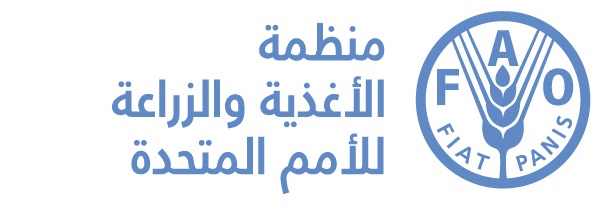
International workshop on pest risk mitigation of sea containers and their cargoes and the facilitation of international trade - defining the way forward
Background
In 2022, the International Workshop on Reducing the Introduction of Pests through the Sea Container Pathway was held on 19-20 September 2022 in London, UK, preceding the International Plant Health Conference. The workshop was attended by 130 participants representing NPPOs, RPPOs international organizations and industry stakeholders such as container owners, shipping lines, container manufacturers, freight forwarders, packers, port authorities, marine terminal operators, shippers, importers, exporters.
The workshop demonstrated the importance of having open dialogue and involvement of a variety of stakeholders discussing how to reduce pest contamination of containers and their cargoes.
Participants at the London workshop recommended that a follow-up workshop be held in 2023. As such, the Commission on Phytosanitary Measures (CPM) Focus Group on Sea Containers (SCFG) is organizing a workshop to provide an opportunity to discuss the progress made by different stakeholders and by the IPPC community and industry as a key step toward the CPM taking decisions on long term IPPC guidance in 2024.
Effective communication is extremely important Without making everyone involved aware of the issues and how they can contribute to the solutions, it is not possible to achieve the goals of risk reduction along the sea container and cargo pathway. It is essential to continue to raise awareness to broader audiences, including stakeholders that are not involved in trade of plants and plant products. It is also clear that an effective risk mitigation program must be designed in a way that minimizes any negative impacts on container logistics and international trade and may be comprised of multiple mutually supporting measures.
While the IPPC is responsible for management of plant health risks for sea containers, it is evident that addressing plant health risks inherent in the sea container pathway may also address other contaminants. Therefore, it will be important to engage with the World Organization for Animal Health (WOAH) to ensure that any solutions proposed by the FGSC to CPM-18 (2024) for decision would be considered and accepted for animal health concerns for a streamlined, predictable and feasible approach to the issue, It will also be important to consider ways to arrange for more and better coordination among and between border agencies so that industry not be subjected to conflicting guidance and requirements. It is understood that Codex has already provided guidance related to chemical residues and cleanliness relating to food shipped in sea containers.
Objectives of the Workshop
- build on the September 2022 International workshop on reducing the introduction of pests through the sea container pathway and develop recommendations for pest risk mitigation while facilitating international trade;
- review and seek comments on the revised CPM recommendation 6 (Sea Containers R-06), the revised recommendation can be accessed at the following link: https://assets.ippc.int/static/media/files/publication/en/2023/01/12_CPM_2023_01_SeaContainers_Draft_CPM_recommendation_2023-01-12.pdf;
- discuss and better understand the data available in relation to pest risks posed by the international movement of sea containers and their cargoes;
- identify common points for potential pest and contaminant reduction measures with the minimal adverse impacts on logistics;
- identify voluntary and regulatory measures together with quality system approaches to reduce the pest risks associated with the sea container pathway;
- engage with the World Organization for Animal Health (WOAH) and Codex Alimentarius to ensure that any solutions would be considered and accepted for animal health coordinate work and avoid any conflicting guidance;
- engage with other border agencies to seek and agree on better coordination and cooperation to not unnecessarily burden trade with duplicative and/or redundant requirements; and
- elaborate recommendations for determining the way forward.
Expected outcomes of the Workshop
- foster further awareness on the risks and impacts of moving, via sea containers and their cargoes, pests that are harmful to plants and promote the importance of the shared responsibility by all parties in the global supply chains to avoid contamination of containers and their cargoes;
- outstanding questions and issues that require further clarification are identified and discussed;
- collect additional input on how to reduce the introduction of pests through the sea container pathway for the FGSC to analyze and submit to CPM-18 (2024);
- feedback on the revised CPM Recommendation No. 6, is collected and shared with CPM Focus Group on Sea Containers in preparation of its report with recommendations for a long-term IPPC guidance to CPM-18; and
- feedback on the regulatory and non-regulatory solutions being considered by FGSC.
Participants
Representatives of NPPOs, RPPOs, international organizations such as IMO, CBD, WCO and WBG and industry stakeholders such as container owners, shipping lines, container manufacturers, freight forwarders, packers, port authorities, marine terminal operators, shippers, importers, exporters.
Location and dates
The workshop will take place from 17 to 19 July 2023, Brisbane, Sofitel Brisbane Central, Queensland, Australia. Participation is free of charge.
Livestreaming
The workshop can be followed via livestreaming at the following Zoom link.
If you want to save the date in your calendar, please download the following iCalendar.
Language
The workshop will be held in English.
Steering committee
 | Wendy Asbil National Manager of the Invasive Alien Species and Domestic Programs team in the Plant Protection Division at the Canadian Food Inspection Agency. Responsible for challenging and exciting work designing, developing and implementing programs to minimize the introduction and spread of invasive alien plant pests in Canada. This work includes engagement with national and international collaborators and stakeholders on diverse issues and initiatives. Pathways of pest introduction such as sea containers, marine vessels, and shipments that are not plants or plant products are areas of focus as are biological control, intentionally imported injurious organisms, in-transit shipments, e-commerce, and specific pests like flighted spongy moth complex, spotted lanternfly and invasive plants. |
 | Lars Kjaer Has been with the World Shipping Council since its inception in 2000. Lars is involved in a multitude of safety-related and other regulatory matters and also deals with OECD digital tax issues insofar as shipping is concerned. Lars participates on behalf of WSC in meetings at the IMO regarding safety, transport of containers, dangerous goods and the Facilitation Convention. He is also chairman of ISO Technical Committee (TC 104) that is responsible for all container-related standards. He participated in the work of the Sea Container Task Force. Prior to joining the World Shipping Council, Lars served as the Washington Representative for the Council of European and Japanese Shipowners’ Associations (CENSA), following a career with the Danish Foreign Service, including postings at the Royal Danish Embassy in Washington, DC, and the Danish Delegation to NATO, Brussels. |
 | Paul Zalai, Freight and Trade Alliance Co-founded Freight & Trade Alliance (FTA), an Australian member-based organisation bringing together industry associations and more than 500 leading businesses involved in international trade. |
 | Rama Karri, NPPO of Australia Director in the Australian Department of Agriculture, Fisheries and Forestry with over 10 years of experience in establishing regulatory settings for managing contaminants and contaminant pests. Significant experience in establishing quality systems in overseas ports to manage pest risks associated with inanimate pathways. He is also a member of the Commission on Phytosanitary Measures (CPM) Focus Group (FG) on Sea Containers, representing Pacific Plant Protection Organisation members. |
 | Wendy Beltz, NPPO of USA USDA’s Plant Protection & Quarantine as a Director within Field Operations. Oversees several domestic programs like Fruit Flies, Citrus Health Response, and Pale Cyst Nematode, as well as Export & Trade. She is the co-chair of the North American Sea Container Initiative and represents the North American Plant Protection Organization on the CPM Focus Group on Sea Containers. |
PRELIMINARY programme of the Workshop is posted below!
Useful links
IPPC leaflet: Reducing the Spread of Invasive Pests by Sea Containers
IPPC guidance: Sea Container Supply Chains and Cleanliness
IPPC Guidelines on Sea Container Surveys: The IPPC Guidelines on Sea Container Surveys for NPPOs
Factsheet on sea containers cleanliness: The IPPC factsheet on the Sea Containers Cleanliness
CPM Focus Group on Sea Containers: CPM Focus Group on Sea Containers
Visa application information: https://immi.homeaffairs.gov.au/visas/getting-a-visa/visa-finder
Livestreaming link: Zoom link

